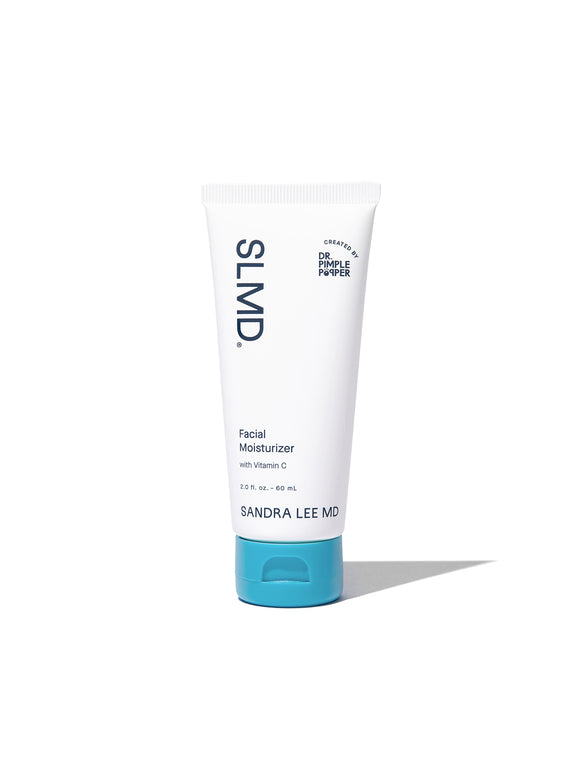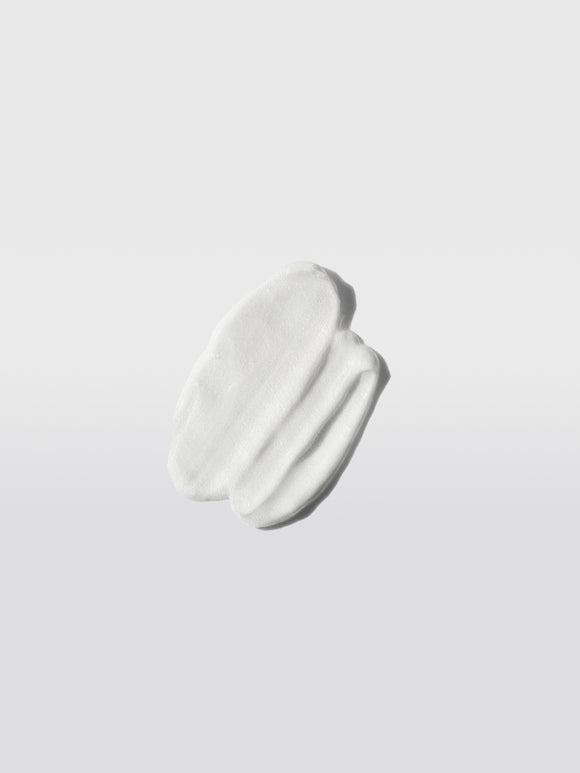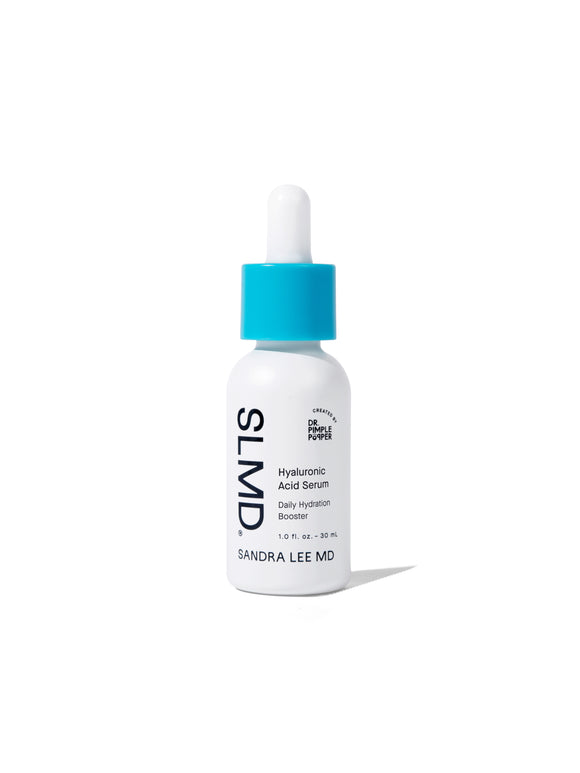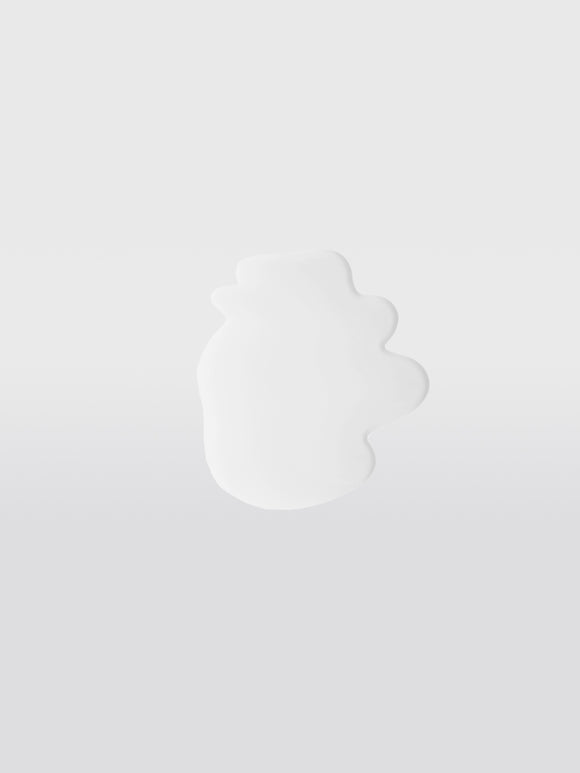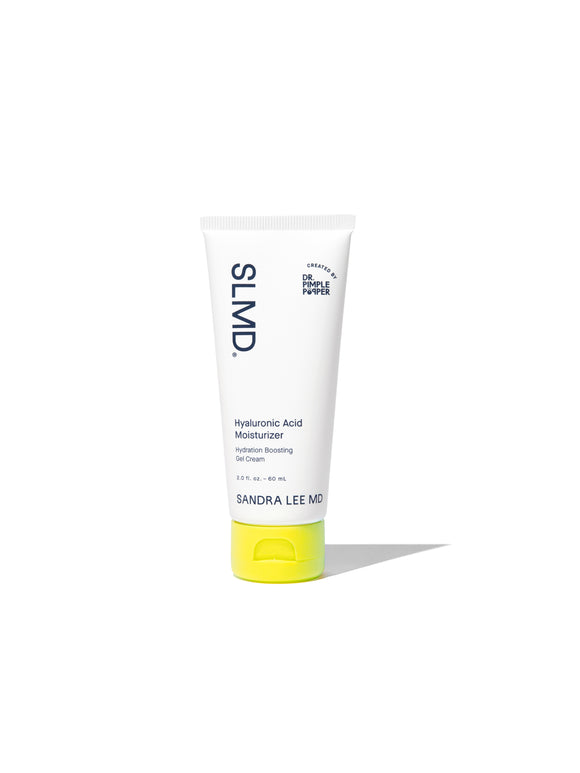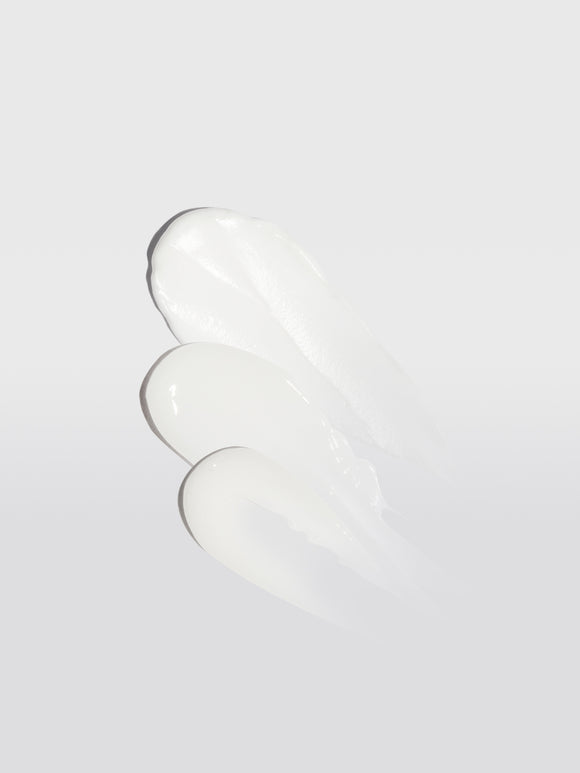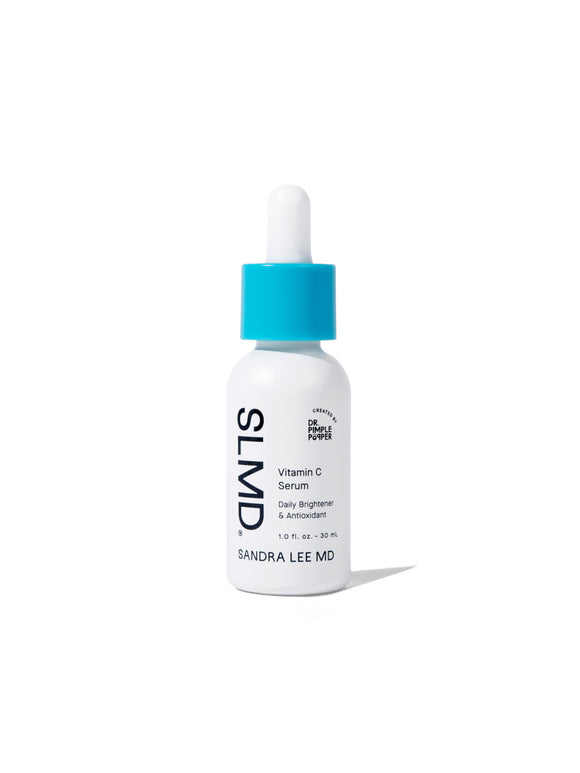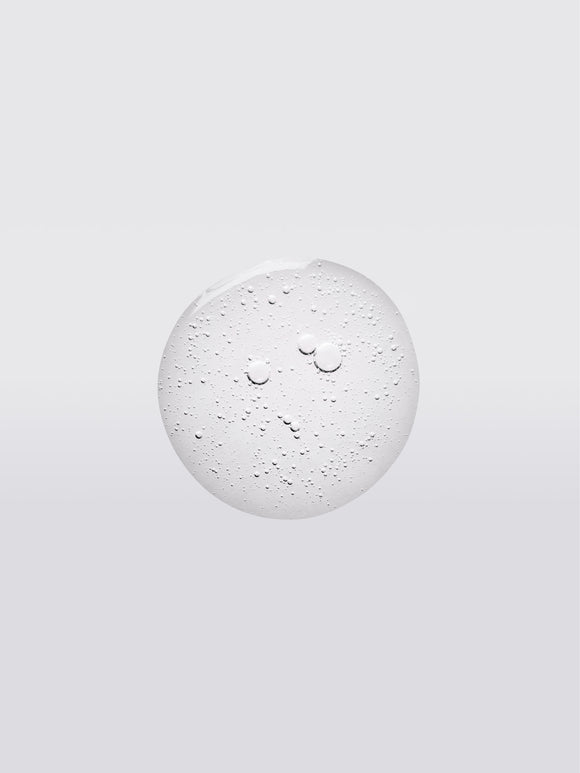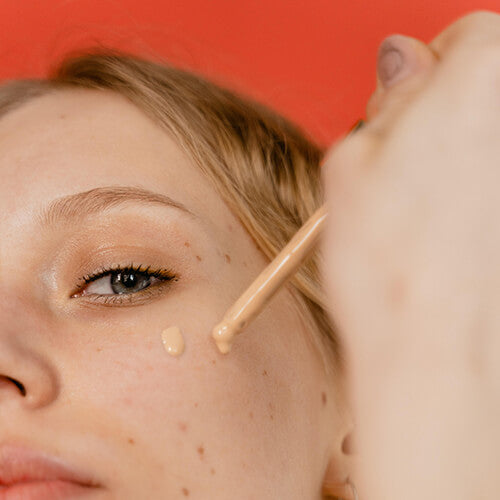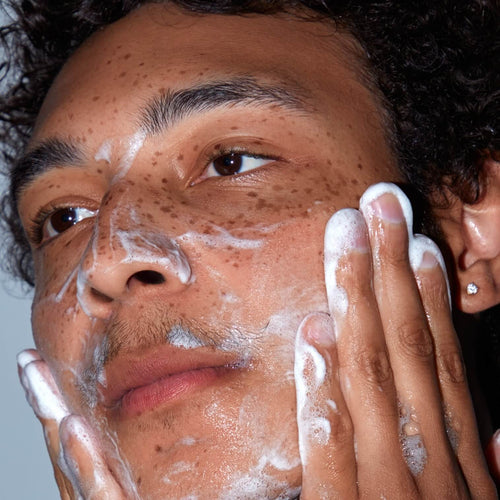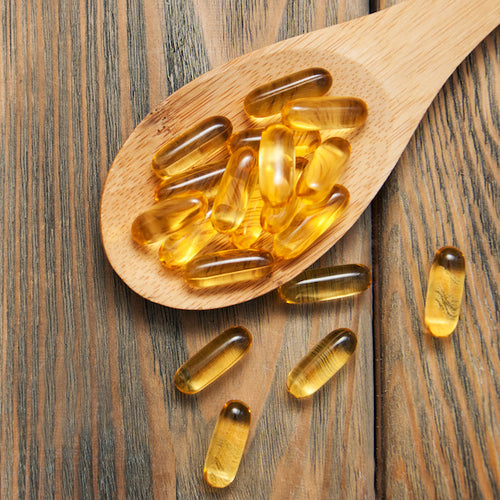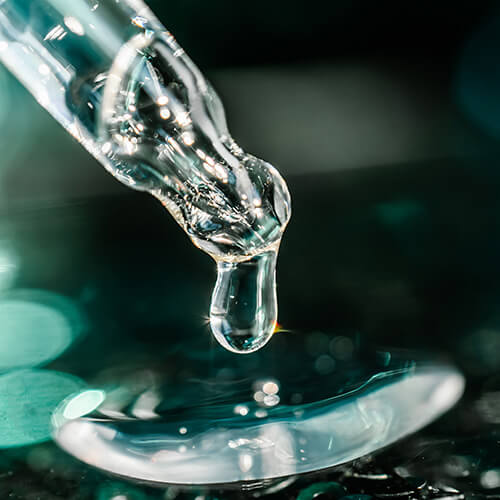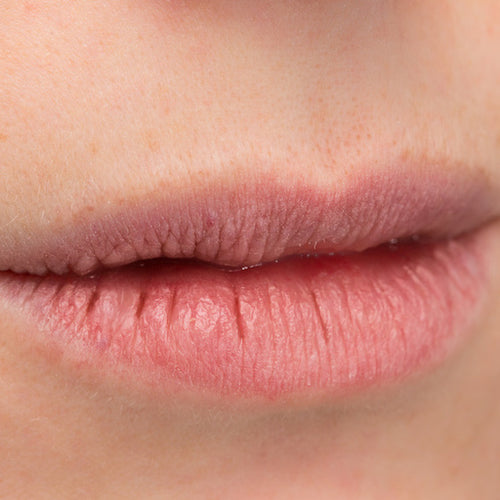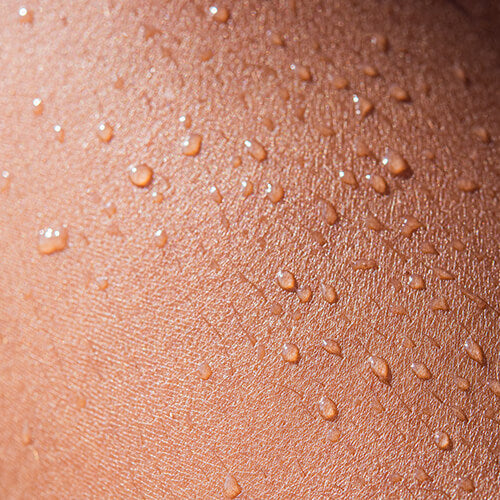
The Skin Barrier: Everything You Need to Know
Dr. Pimple Popper explains how to tell if it's healthy — and what to do if it's not.
Published:
4 minute read
If the Internet is any indication, we’re pretty concerned about our skin barrier. Is it compromised? Damaged? How will we ever repair it?
For a situation so seemingly dire, we certainly lack understanding: for starters, what even is it — and is it really so hard to take care of? We’re diving deep with SLMD Skincare founder Sandra Lee, MD (aka Dr. Pimple Popper) to discover everything you need to know about the skin barrier.
Article Quick Links
What is the skin barrier?
When we talk about the skin barrier, we’re essentially referring to the outermost layer of the epidermis known as the stratum corneum. These are flattened, dead cells (aka corneocytes) that are bound tightly and surrounded by lipids (like ceramides) that seal it all together. This forms a protective layer that looks kind of like a brick wall, notes Dr. Lee.
What does the skin barrier do?
As noted above, the skin barrier mainly consists of corneocytes bound (both physically and chemically) together, forming a watertight seal. It only seems simple: scientists are just scratching the surface to uncover the complex range of chemical compounds and processes that influence the barrier function.
Researchers are looking into the role of substances like neurotransmitters and immune system proteins called cytokines, to see how they affect our body’s protective shield. They’re hoping to unlock the secrets of how our skin barrier accomplishes its two main tasks:
- Protection from what’s outside: guarding against microbial invasion (bacteria, viruses, fungi), UV penetration, poisons, allergens and physical damage (burns, abrasions, cuts)
- Regulation of what’s inside: preserving nutrients, preventing TEWL — transepidermal water loss, and maintaining body temperature
What can penetrate the skin barrier?
Having a healthy barrier function means that nothing gets in — and what gets out is tightly controlled. But we now know that there are a host of chemical substances that can penetrate the skin, including a variety of topical skincare ingredients like retinol and glycolic acid. Whether or not a particular molecule gets in depends on several factors, including:
Skin factors
- Age — older skin is more permeable
- Integrity — damage makes skin more penetrable
- Location — certain areas are thicker, therefore less permeable, than others
- Time — studies show that skin is more permeable at night
Chemical factors
- Size — molecules less than 500 Daltons (an atomic mass unit) typically get through
- pH — acidity level can impact a substance’s penetrability
- Solubility — oil-soluble molecules can penetrate into the lipid layer better
- Concentration — the amount of active ingredient influences whether it passes through
- Delivery — nanotechnology (including encapsulating ingredients in lipids) and microneedling can deliver particles to deeper levels
What damages the skin barrier?
Fortunately, our skin is resilient — and maintaining a consistent skincare routine is generally enough to keep it healthy. That being said, there are many ways to compromise your skin’s protective barrier — some we can control, others we cannot — including:
- Age: function diminishes over time
- Genetics: altered by gene expression or mutation UV exposure: both UVB and UVA rays
- Extreme weather: wind, intense heat and cold
- Skincare: over-washing, over-exfoliating, using alcohol-based products, excessive shaving/waxing, not moisturizing
- Lifestyle: smoking, lack of sleep, stress, not removing makeup, not drinking enough water, poor diet
- Accident/injury: cuts, scrapes, burns
Dr. Pimple Popper's Skin Barrier Superstars
How can you tell if your skin barrier is weakened?
Industry buzzwords aside, you probably already understand what it means to have a damaged skin barrier. Telltale signs include:
- Dryness: flakes, cracks, peeling, tightness
- Dullness: a persistently lackluster complexion
- Inflammation: swelling (aka edema), redness, tenderness
- Itching: aka pruritus
- Allergy: hives or welts (aka urticaria)
- Infection: bacterial, viral or fungal
- Acne: new or worsening symptoms
There are some common skin conditions that have been linked to impaired barrier function, including:
- Eczema: research shows that atopic dermatitis may be caused by a filaggrin gene mutation
- Psoriasis: the connection isn’t clear, but a damaged skin barrier may trigger/worsen the condition
- Inflammatory acne: compromised barrier function can make P. acnes infection worse
Dr. Pimple Popper's tips to repair a damaged skin barrier
Sometimes, skin barrier damage is unavoidable — if you get injured, for example. The good news: your body is designed to repair itself, and your skin barrier is no exception. If you suspect your skin is compromised, try the following measures for 10-14 days:
- Ease up on exfoliants and eliminate physical scrubs for the face
- Dial back potent actives including retinol, vitamin C and peptides
- Hydrate and moisturize to soothe inflammation
- Avoid makeup to allow skin to breathe and heal
- Make healthy choices (stay out of the sun, get plenty of sleep, and eat a smart diet)
There are many dermatological ingredients known for their ability to help support and restore healthy skin barrier function, says Dr. Lee, including:
- Niacinamide: a B vitamin that calms inflammation and stimulates ceramide production
- Colloidal oatmeal: clinically proven to soothe eczema
- Hyaluronic acid: attracts and retains water, reduces inflammation
- Squalane: mimics skin’s own natural lipids
- Lactobacillus: derived from probiotics to promote skin balance

Dr. Lee's Last Word
I get so many questions from patients about the skin barrier: what it is, how to tell if it’s damaged, what you can do to fix it. People have this misconception that they need to be actively attending to something their skin does naturally. But if you’re maintaining a consistent skincare routine and not overdoing it with active ingredients, your skin health will follow suit. If your skin barrier does become compromised, there are some proven ingredients that protect and heal.



